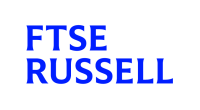Insights you might have missed this week
Air travel demand, Liberation Day, and no U.S. stocks?
Explore some of the highest quality insight collected from top asset managers and institutions that you might have missed this week.
Howard Marks - Navigating Private Credit (Capital Allocators)
This conversation covers Howard's journey from his early days in finance to his current insights on the evolving credit landscape.
Equity Outlook: Equities in a New World Order (Robeco)
The short-term outlook for both developed and emerging market equities is clouded by trade policy fears, but active global investors have an opportunity to outperform as old certainties crumble.
2025 Q2 Multi-Asset Outlook (PGIM Quantitative Solutions)
The second Trump administration has hit the ground running with a slew of measures designed to shake up both policy and the U.S. economy.
Air Travel Demand Outlook 2025: Steady Growth Despite Supply Constraints (BCG)
After 6.5% growth in air travel in 2024, airlines should see similar growth in 2025, although many variables are in play.
What If You Owned No U.S. Stocks? (Cambria Investments)
What is the single most universally held belief in all of investing? Think about it for a minute. Cambria Investments’ vote would be “Investors MUST own U.S. stocks.”
ERP: Determinants, Estimation, and Implications – 2025 Edition (Aswath Damodaran)
The equity risk premium is the price of risk in equity markets, and it is not only a key input in estimating costs of equity and capital in both corporate finance and valuation, but it is also a key metric in assessing the overall market.
Tracking AI in 10 Charts (Robeco)
As AI continues to advance, it is crucial for professional investors to stay informed about its trajectory and implications.
Update on U.S. Liberation Day (Candriam)
Whether or not tariffs are part of a broader agenda, Trump views them not only as a negotiating tool, but also as a means of correcting trade imbalances, re-industrializing the U.S. and raising fiscal revenue.






